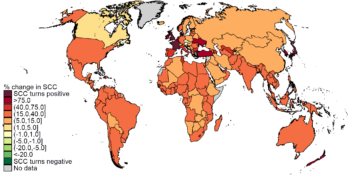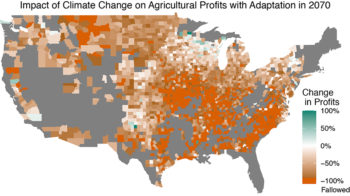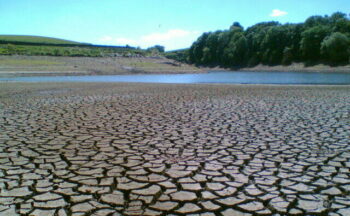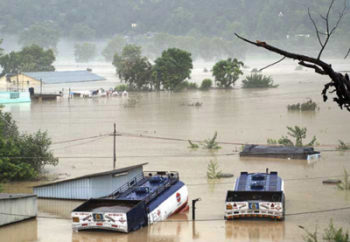James Rising

James is an interdisciplinary modeler, studying the feedback between environmental and human systems, and focusing on the impacts of climate change and the water-energy-food nexus. He draws upon analytical and empirical approaches from multiple fields and develops computational and statistical models to understand integrated global challenges.
Background
Prior to joining the Grantham Research Institute, James held postdoctoral positions at the Energy & Resources Group at UC Berkeley and the Energy Policy Institute at the University of Chicago. He received his Ph.D. from Columbia University’s program in Sustainable Development. He previously taught within MIT’s Experimental Study Group and at Franklin W. Olin College of Engineering. He has also had a career as a software developer, working with over a dozen companies on audio and video processing, social networks, and artificial intelligence.
Research Interests
- Social-Environmental Modeling
- Environmental and Resource Economics
- Water-Energy-Food Nexus
Research
Research - 2025
The authors of this paper calculate the economic value of methane emission abatement efforts and find that reasonable actions could reduce climate-related damages in 2050 by more than a trillion dollars a year while costing only one sixth of the damages they would avoid. Read more

Research - 2024
This survey reveals that experts believe the literature underestimates the social cost of carbon (SCC) due to an undersampling of model structures, incomplete characterization of damages, and high discount rates. To address this imbalance, the authors of this paper train a random forest model on variation in the literature and use it to generate a synthetic SCC distribution that more closely matches expert assessments of appropriate model structure and discounting. Read more

Research - 2022
The authors of this paper argue that these unquantified, poorly understood and often deeply uncertain risks from climate change can and should be included in economic evaluations and decision-making processes. Read more

This review seeks to provide a common basis for natural scientists, social scientists, and modellers to understand the research challenges involved in evaluating the economic risks of climate change. Read more

Research - 2021
The authors of this paper develop a new model to estimate the economic impacts of climate tipping points, such as disintegration of the Greenland Ice Sheet. Read more

Research - 2020
A key strategy for agriculture to adapt to climate change is by switching crops and relocating crop production. We develop... Read more

We convened a workshop to enable scientists who study water systems from both social science and physical science perspectives to... Read more

Ocean currents carry fish in the early stages of their life cycle across international boundaries. As a result, international cooperation... Read more

Research - 2019
Climate change will impact many economic sectors and aspects of natural and human wellbeing. Quantifying these impacts as they vary... Read more

Fish stocks are managed within national boundaries and by regional organizations, but the interdependence of stocks between these jurisdictions, especially... Read more

Studying trade-offs in the long-term development of water-energy-food systems requires a new family of hydroeconomic optimization models. This article reviews... Read more

Water data play a crucial role in the development and assessment of sustainable water management strategies. Water resource assessments are... Read more

Research - 2018
A key goal of urban transportation planning is to provide people with access to a greater number of opportunities for... Read more

Abstract Integrated Assessment Models (IAMs) have become critical tools for assessing the costs and benefits of policies to reduce greenhouse... Read more

Policy
Policy - 2022
This report and brief provide improved estimates of the likely economic damages from climate change to the UK, highlighting where the greatest risks and need for adaptation are. These are translated into loss of socioeconomic welfare and reported as an equivalent loss of the UK’s GDP under two different policy scenarios – one in which current policies continue and another in which strong mitigation policies are put in place. Read more

Policy - 2021
This report is part of a series of papers prepared by Resources for the Future (RFF), Environmental Defense Fund (EDF),... Read more

Policy - 2019
Economic assessments of the potential future risks of climate change have been omitting or grossly underestimating many of the most serious consequences for lives and livelihoods because these risks are difficult to quantify precisely and lie outside of human experience. This policy insight identifies and draws attention to these 'missing risks' and discusses how populations might fare in light of their potential to adapt in the face of these risks. Read more


